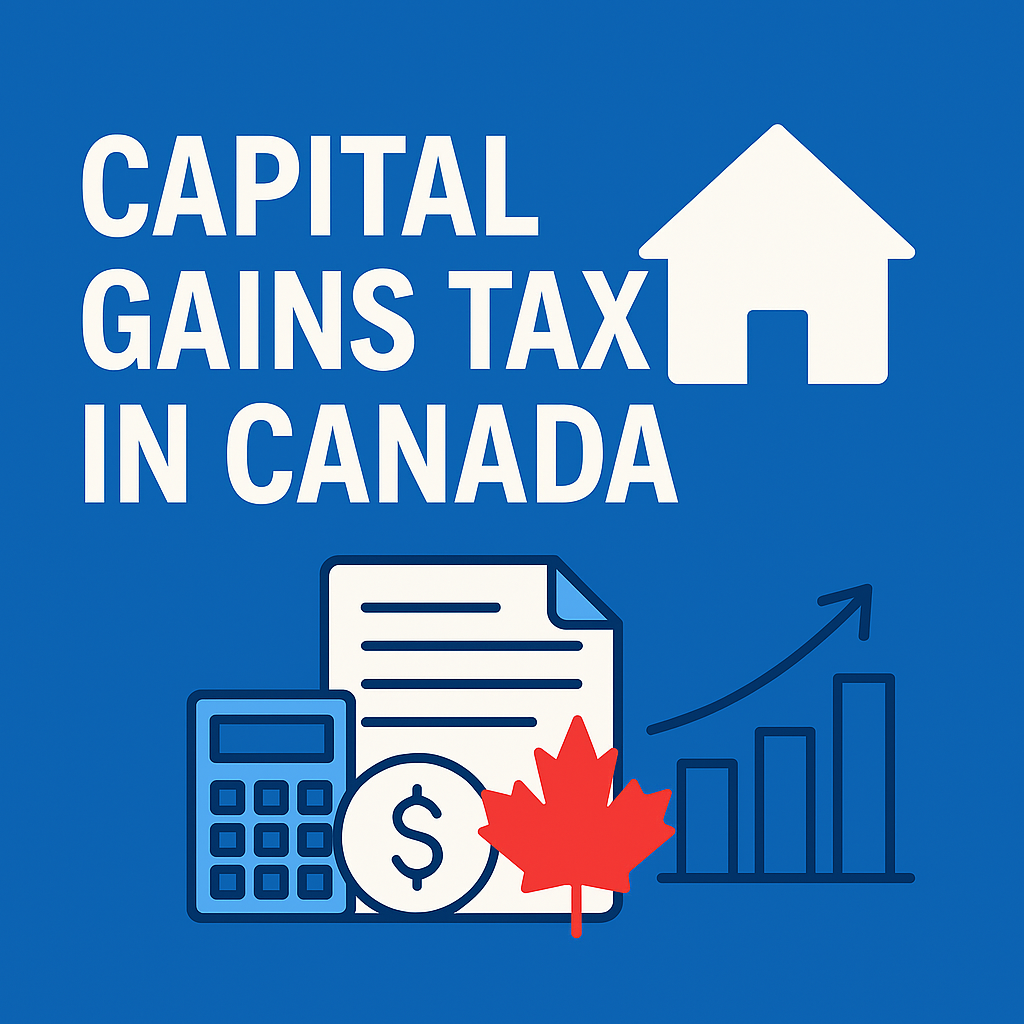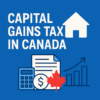Capital gains tax can feel overwhelming, especially if you are preparing to sell a property or investment in Canada. Whether you are a homeowner, investor, or landlord, knowing how to reduce or avoid capital gains tax legally can save you thousands. This guide explains what capital gains tax is, how it is calculated, and practical ways to minimize it with real-life scenarios and tips.
Key Insights
- Capital gains tax applies when you sell a capital asset, like real estate or investments, at a profit.
- Only 50% of your profit is taxable and added to your income.
- You can reduce your tax bill with legal strategies such as the principal residence exemption and capital gains reserves.
What Is Capital Gains Tax in Canada?
Capital gains tax is applied when you sell a “capital property” for more than you paid for it. This includes:
- Real estate properties (excluding your principal residence in some cases)
- Rental or investment properties
- Shares, stocks, bonds, or REIT units
- Business shares and collectibles
Example: You buy a rental unit in Vancouver for $500,000 and sell it five years later for $700,000. After deducting $20,000 in selling costs, your capital gain is $180,000. Only $90,000 (50%) is added to your taxable income.
How To Minimize Capital Gains Tax on Real Estate in Canada
1. Principal Residence Exemption
If the property was your principal residence for all years you owned it, you might not owe capital gains tax on its sale.
Example: You lived in a home for 10 years and sold it for $250,000 more than you bought it. Since it was your principal residence, the capital gain is fully exempt.
2. Make a Gifted or Inherited Property Your Principal Residence
If you inherit or receive a home as a gift, living in it and designating it as your primary residence can reduce or eliminate future capital gains tax.
Example: You inherit a cottage, live in it for a year, and sell it at a profit. Because it became your principal residence, you may qualify for the exemption.
3. Incorporate Your Rental Property Business
Transferring rental property ownership to a corporation can lower your tax rate, as corporate tax rates are often lower than personal ones.
Scenario: You own three income properties. By incorporating your rental business, you pay capital gains tax at the corporate rate upon sale, which may result in savings.
4. Reinvest Earnings Into a Tax Shelter (RRSP)
Putting profits into an RRSP helps lower your total taxable income, which can offset the capital gain amount indirectly.
Note: Always consult a tax advisor before using this strategy.
5. Use the Capital Gains Reserve
If you receive payment for a property over multiple years, you may spread the gain over those years using a capital gains reserve.
Example: You sell a property for $400,000 but are paid $100,000 yearly. You can report one-quarter of the capital gain each year.
6. Offset with Capital Losses
Capital losses from selling assets at a loss can offset your capital gains.
Scenario: You made a $100,000 gain on one property and a $40,000 loss on another. You can use $20,000 (50% of the loss) to reduce your taxable gain to $80,000.
7. Carry Forward Past Capital Losses
Unused capital losses from previous years can be carried forward to offset gains in the future. These can be tracked via your CRA account.
How To Calculate Capital Gains Tax on Property Sales
Use this formula to determine your taxable capital gain:
- Proceeds of Disposition: Sale price – selling expenses
- Adjusted Cost Base (ACB): Purchase price + acquisition costs (legal fees, renovations)
- Capital Gain: Proceeds – ACB
- Taxable Amount: 50% of Capital Gain
Example:
- Purchase Price: $400,000
- Renovations: $50,000
- Selling Price: $600,000
- Selling Costs: $20,000
Capital Gain = ($600,000 – $20,000) – ($400,000 + $50,000) = $130,000
Taxable Gain = $130,000 × 50% = $65,000 (added to your income)
Frequently Asked Questions
Do I have to report the sale of my home to the CRA?
Yes, even if it is your principal residence or if you sold at a loss. Not reporting can lead to penalties.
Can I defer capital gains tax in Canada?
You may defer it using the principal residence exemption, capital losses, or certain tax-deferred transfers (rollovers).
Can I avoid capital gains on a rental property?
Yes, legally, by incorporating your business, using the principal residence exemption, or reinvesting in tax shelters. Always consult a tax professional.
Is gifted property taxable?
Yes. Canada considers gifts to be sold at fair market value. You will owe tax on any gain unless the property qualifies for an exemption.
What is the capital gains tax rate in Canada?
50% of your capital gain is taxable and added to your personal income, taxed at your marginal rate.
Conclusion
Understanding how capital gains tax works in Canada and taking steps to reduce your liability can help protect your wealth. Use exemptions wisely, keep detailed records, and always consult a tax expert when selling property or transferring capital assets. With the right strategies, you can significantly reduce what you owe.

















